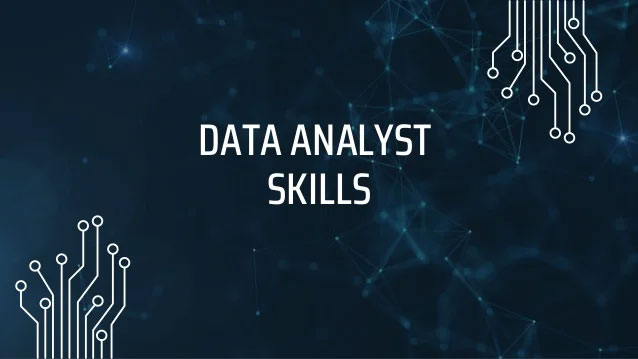In today’s fast-moving digital world, data is more valuable than gold. But raw data by itself means nothing. It’s the data analyst who gives it meaning and helps companies make smart, informed decisions.
If you’re planning to build a career in data or already working as an analyst, there’s more to the job than just Excel and SQL. In 2025, companies are looking for professionals who can understand business, solve problems, and tell meaningful stories with data. Here are the top 10 business skills every data analyst must master in 2025 to stay relevant and grow confidently in their career.

Top 10 business skills every data analyst must master in 2025
-
1. SQL and Database Management
Everything begins with data, and most of it lives in databases. SQL is the most important language for any data analyst. It allows you to fetch, filter, join, and manage data from different sources.
Knowing how to write clean and optimized SQL queries is like holding the master key to any company’s data. If you master SQL, you’ll always have control over your analysis and insights.
-
2. Programming Languages (Python or R)
Python is today’s go-to language for data analysts. It helps you automate repetitive tasks, handle large datasets, perform detailed analysis, and build reports and dashboards.
While R is great for statistical research, Python is preferred in most industries. Mastering Python adds speed, flexibility, and power to your data workflow.
-
3. Statistical Analysis
Understanding numbers is good, but making sense of them is essential. That’s where statistics come in.
Key concepts like mean, median, standard deviation, correlation, and regression help you measure performance and predict trends. With a solid grip on statistics, you won’t just report results — you’ll explain the why behind the numbers.
A picture speaks louder than numbers. Data visualization turns boring rows of data into meaningful visuals that even non-technical people can understand.
Tools like Power BI, Tableau, and libraries like Seaborn or Matplotlib let you build beautiful charts, graphs, and dashboards. Strong visualization skills help decision-makers see the real story hidden in data.
You don’t need to become a machine learning engineer, but knowing the basics of ML will give you an edge.
Understanding simple models like linear regression, clustering, or decision trees helps solve real business problems like predicting customer churn, forecasting sales, or detecting fraud. A data analyst who knows ML stands out in a crowded job market.
-
6. Data Cleaning and Wrangling
Real-world data is often messy, filled with errors, duplicates, and missing values. That’s why data cleaning is a must-have skill.
Using Excel or Python libraries like Pandas, you should be able to clean and structure the data properly. Clean data leads to accurate results, and that’s what every company expects.
-
7. Business Intelligence
Business Intelligence means using data to support smart business decisions. Tools like Power BI, Tableau, or Google Data Studio help you create dashboards and reports that track KPIs, performance, and business growth.
If you understand BI, you become the bridge between data teams and business teams, which makes you a highly valuable professional.
-
8. Communication and Data Storytelling
Your data may be powerful, but can you explain it clearly?
As a data analyst, you must be able to tell the story behind the numbers. Whether it’s in a presentation or a meeting, you should explain what’s happening and why in simple, confident language.
Strong communication turns your work from technical to transformational.
-
9. Critical Thinking and Problem-Solving
Data doesn’t always speak for itself. You need to ask the right questions, find the root causes, and connect patterns.
Critical thinking allows you to go deeper than surface-level numbers. For example, if sales dropped, don’t just report the figure. Explain what caused it and suggest what can be done. That’s how real business problems are solved.
-
10. Business Acumen
This is what separates a data operator from a data leader.
To deliver valuable insights, you must understand how businesses work, including sales, marketing, finance, operations, and customer behavior. The more business context you understand, the more impactful and actionable your analysis becomes.
Final Thought:
In 2025, companies are not just hiring analysts who know tools. They want professionals who can drive change through data.
At ConsoleFlare, we don’t just teach you software. We train you to become a complete data professional, ready to take on real-world challenges. Our hands-on projects, industry-driven content, and personalized guidance help you move from beginner to expert confidently.
If you’re serious about making a strong career in data analysis, your journey starts here.
For more such content and regular updates, follow us on Facebook, Instagram, LinkedIn




